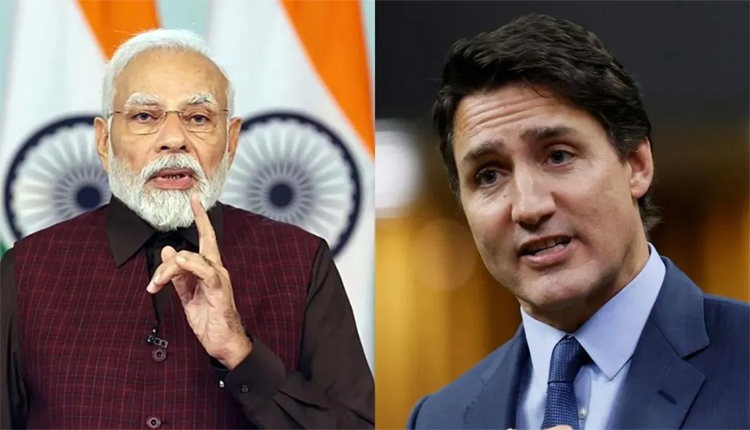NewDelhi:Over the past year, Canada has consistently voiced criticisms against India, culminating in a recent statement by Canadian Prime Minister Justin Trudeau that has further strained relations between the two nations. The controversy centers around the Khalistani activist Hardeep Singh Nijjar, with Canada alleging Indian involvement in his assassination. In response, India has expelled six Canadian diplomats, signaling a firm stance against what it perceives as baseless accusations.
The bilateral trade between India and Canada, valued at approximately ₹67,000 crore, is now at risk. India exports a significant volume of goods to Canada, and this diplomatic rift could jeopardize these economic ties. However, India might have another card to play. The upcoming G7 summit, set to be hosted by Canada next year, could see India boycotting the event as a form of protest. The G7, comprising Canada, France, Germany, Italy, Japan, the United States, and the European Union, often invites other nations to participate. Last year, Italy hosted the 50th summit, where Indian Prime Minister Narendra Modi was warmly welcomed by Italian Prime Minister Giorgia Meloni.
Trudeau’s recent remarks have prompted a strong reaction from India’s Ministry of External Affairs (MEA). Trudeau stated, “We do not seek this conflict, but the murder of a Canadian on Canadian soil is something we cannot ignore as a nation. We have clear and concrete evidence that agents of the Indian government are involved in activities that pose a threat to public safety.” He further mentioned that the Royal Canadian Mounted Police (RCMP) had shared evidence with Indian officials, concluding that six Indian agents were involved in criminal activities.
In response, the MEA dismissed these allegations as absurd, accusing Trudeau of attempting to tarnish India’s image for political gain. The MEA stated, “Prime Minister Justin Trudeau is making these unfounded accusations to further his political agenda and damage India’s reputation.”



Comments are closed.